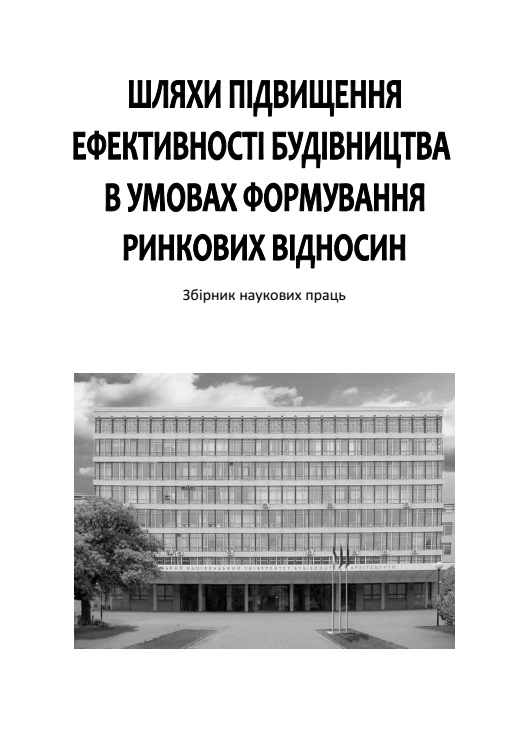Theoretical and innovative concept of technological processes in heat and power system constructions
DOI:
https://doi.org/10.32347/2707-501x.2018.38.27-35Keywords:
innovations, efficiency of functional processes, electromagnetic fields, technogenic-resource processesAbstract
The article discusses the thermodynamic concept of innovative processes, the thermodynamic concept of non-reagent preparation of industrial water of thermal power plants. Thermodynamic functional characteristic is presented in heat and power construction systems with non-reagent water purification in electromagnetic fields. It is noted, as regards biological impurities in water, that this method eliminates the accumulation of salts in the pipeline, biological damage, as the occurrence of potentially possible critical man-made situations.References
Figovski, O. (2005), The Purposes of Mankind in the Millennium to come. Ecology and human health. Protection of air and water basins. Waste utilization: 2 tons. T.1: Collection of scientific articles for the XIII International Scientific and Practical Conference. Kharkov: Ryder UkrGSTEC "Energostal.
Klassen, V.I. (1973) Water and Magnet. Moscow: Publishing House "Nauka".
Malkin, E.S., Zhuravska, N.E. (2017) Ecologo end energy-saving technologies with the use of water in the magnetic fields. Ecological safety and natural resources. 24. 106 - 111.
Kulikov, P., Bondar, О. & Zhuravska, N. (2018) Environmental management of production processes in heating systems when receiving magnetic water in a reagent-free method with the aim of environmentalization. International Journal of Engineering and Technology (UAE). 7, 3.2. 621-625.
Zhuravska, N.E. (2018) Non-reagent water treatment in electromag-netic fields. Urban Planning and Territorial Planning. 66. 193-198.
Malkin, E.S., Furatat, I.E. & Zhuravska, N.E., Usachev, V.P (2014). Perspectives of creating energy-saving technologies by processing water and water solutions. Ventilation, lighting and heat and gas supply. 17. 121-127.
Mantashov, A.T. (2015) Workshop on heat engineering: a manual. Perm: IPC "Procrost".
Kozlobrodov, A.N., Nemov, T.N. & Flowers, N.A. (2015), Workshop on heat engineering: in 3 hours. Part 1. Technical thermodynamics. TGASU.
Erofeev, V.L. (2018), Heat engineering. Workshop: a manual for SPO. Publishing House Yurayt.
Malkin E.S., Furatat I.E. & Zhuravsk N.E. (2017) Special issues of heat and mass transfer. Scientific textbook. KNUBA.
Malkin, E.S., Furtat, I.E. & Zhuravska, N.E. (2015) The system of preparation of magnetized water in the electromagnetic fields of water and solutions and compounds based on it. The patent for useful mode 102494.
Bondarenko V.I. (2012-2013), From Fire and Water to Electricity [Electronic resource] Energy: History, Present and Future. Access mode: http: energetika.in.ua/ru/books/book-1/zaklyuchenie. (Revocation Date: 1.10.2016).
Gotovsky, M.A. & Suslov, V.A. (2013) Heat exchange in technological installations of the CBP: study. Аllowance. SPb GTU RP. St. Pe-tersburg.
Prigogine, I. & Stengers, І. (1986) The Order of Chaos: The New Dialogue of Man with Nature. Progress.
Zhuravska, N.E. (2016) Energy saving technology of the influence of biocorrosion on materials Urban Planning and Territorial Planning: 60. 155-162.
Downloads
How to Cite
Issue
Section
License
Copyright (c) 2020 N. Zhuravska

This work is licensed under a Creative Commons Attribution 4.0 International License.
Authors who publish with this journal agree to the following terms:
- Authors retain copyright and grant the journal right of first publication with the work simultaneously licensed under a Creative Commons Attribution License that allows others to share the work with an acknowledgement of the work's authorship and initial publication in this journal.
- Authors are able to enter into separate, additional contractual arrangements for the non-exclusive distribution of the journal's published version of the work (e.g., post it to an institutional repository or publish it in a book), with an acknowledgement of its initial publication in this journal.
- Authors are permitted and encouraged to post their work online (e.g., in institutional repositories or on their website) prior to and during the submission process, as it can lead to productive exchanges, as well as earlier and greater citation of published work (See The Effect of Open Access).

